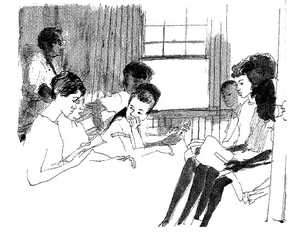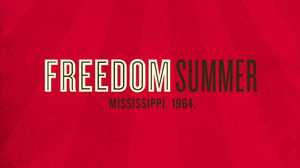In 1964, over 700 volunteers from across the country joined organizers and local African Americans in Mississippi to participate in "The Mississippi Summer Project." View photos from that summer, from training in Oxford, OH to canvassing the towns of Mississippi to campaigning at the Democratic National Convention in Atlantic City, NJ.
-
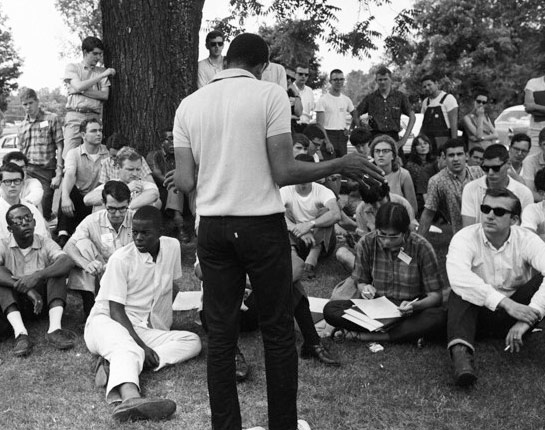
On June 14, 1964, the first group of Freedom Summer Volunteers arrived for training at the Western College for Women in Oxford, OH. Note Mickey Schwerner (in overalls) and Rita Schwerner (in sunglasses) in the back right.
Credit: Steve Schapiro -
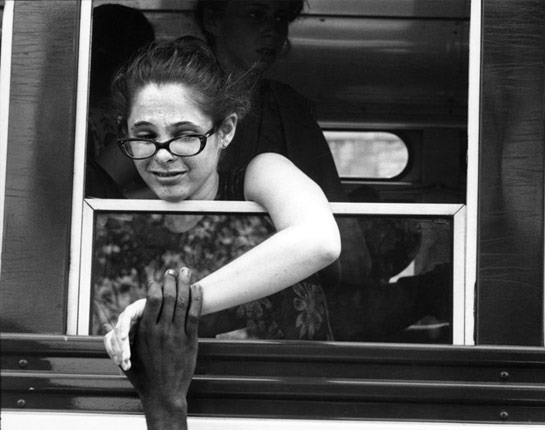
On June 21, volunteers left Ohio for Mississippi. Their primary objectives would be to canvass black neighborhoods to encourage voter registration, teach in Freedom Schools, and organize and support the Mississippi Freedom Democratic Party.
Credit: Newseum/Ted Polumbaum -
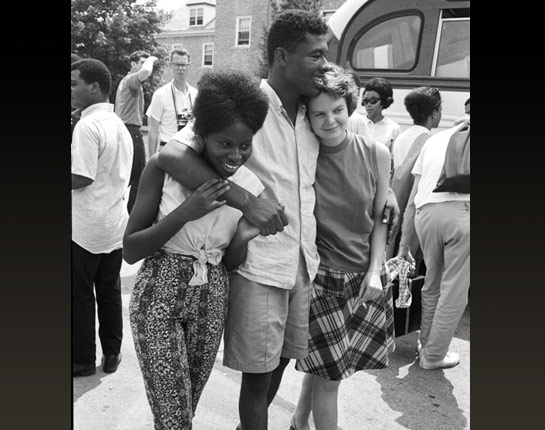
More than 700 volunteers from across America participated in Freedom Summer. Mostly college students, they joined workers from local civil rights organizations.
Credit: Steve Schapiro -
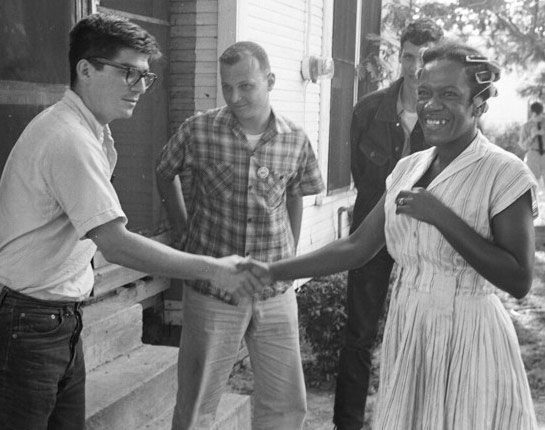
Volunteer Walter Kaufmann (not pictured) said host families displayed "tremendous courage and amazing hospitality to us. They've helped to feed us, they've encouraged us, they've warmed us with their friendship and smiles."
Credit: Steve Schapiro -
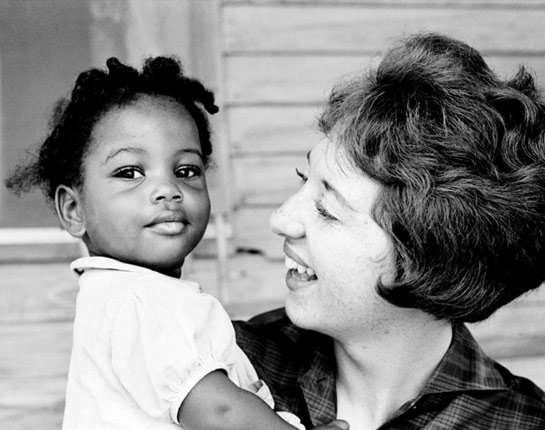
"We ain't got very much," said one local host. "But what we got, we wants to share with these folks who're leavin' their comfortable homes and families to come help us."
Credit: Newseum/Ted Polumbaum -
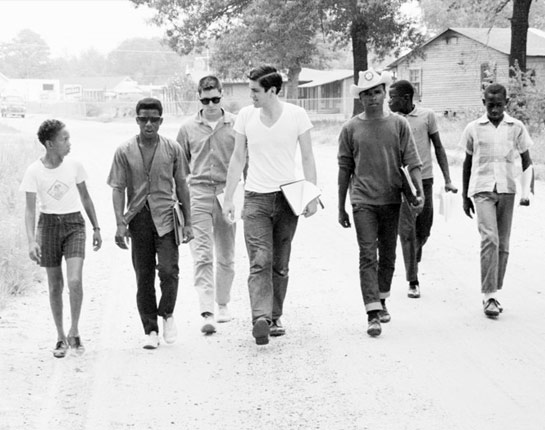
"The day-to-day work was canvassing," wrote organizer Larry Rubin (not pictured). "We walk down these dusty red country roads in the negro sections, go from tumbledown house to tumbledown house, and if they come out to the porch or let us in, we talk to the people. That's it."
Credit: Newseum/Ted Polumbaum -
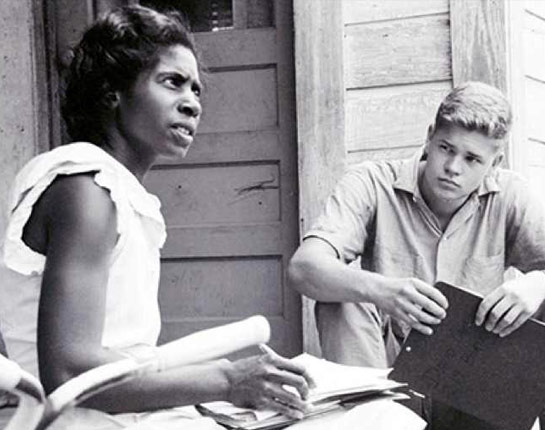
Here, David Owen, a 19-year-old volunteer from Oberlin College, speaks to a local black woman about registering to vote. Owen would continue volunteering in Mississippi until January 1965.
Credit: Newseum/Ted Polumbaum -
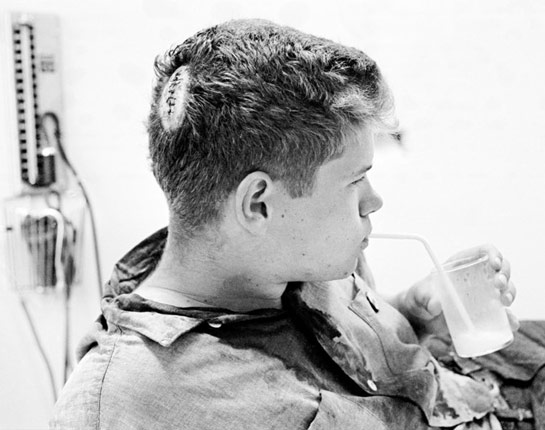
Volunteers and supporters were attacked regardless of race. Here, volunteer David Owen rests after receiving medical treatment for a blow to the head.
Credit: Newseum/Ted Polumbaum -
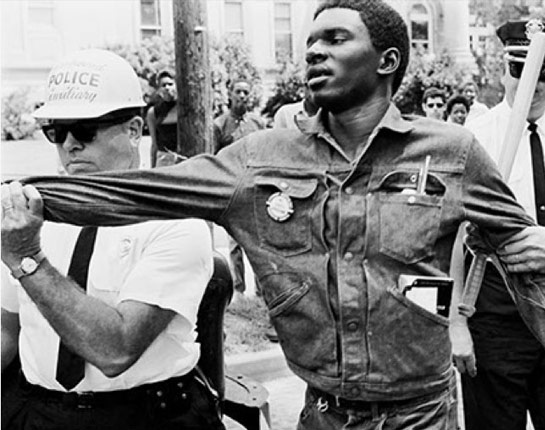
SNCC workers and Freedom Summer volunteers held Freedom Day in Greenwood, MS on July 16 in an effort to increase voter registration. Police arrested 111 activists and local residents, including SNCC worker Monroe Sharpe, pictured here.
Credit: Newseum/Ted Polumbaum -
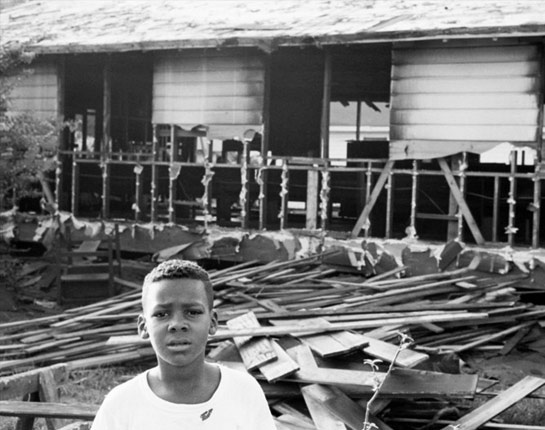
Between June and September of 1964, at least 20 black churches were bombed or burned across Mississippi. Here, a child stands in front of a burned out church.
Credit: Newseum/Ted Polumbaum -
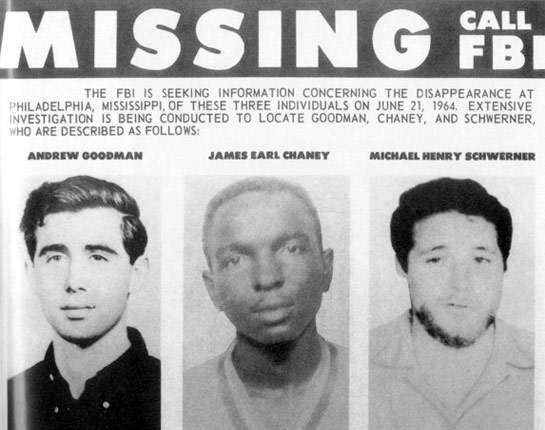
On June 21, three Civil Rights workers, Michael Schwerner, James Chaney and Andrew Goodman, went missing near Philadelphia, MS, bringing nationwide attention to Mississippi and the Freedom Summer project.
Credit: Federal Bureau of Investigation -
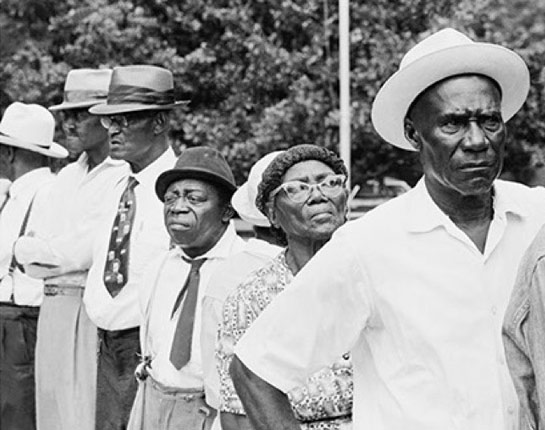
"You couldn't go to the police," said activist Julian Bond (not pictured). "You couldn't go to the sheriff, you couldn't go to the state officials. All of these people were hostile and probably the people who were threatening you themselves."
Credit: Steve Schapiro -
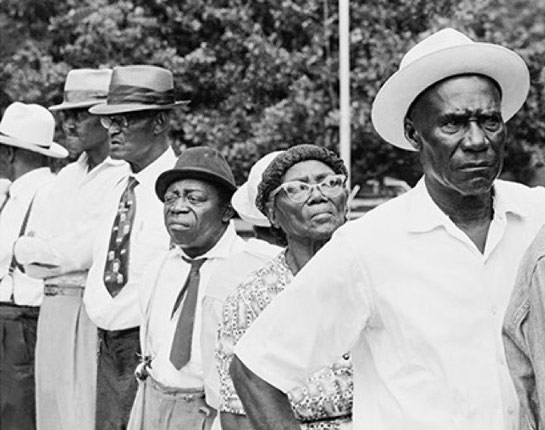
During the summer of 1964, 17,000 blacks tried to register to vote in Mississippi, but only 1,600 applications were accepted. Here, elderly black residents stand in line waiting to register to vote at the Leflore County Courthouse in Greenwood, MS.
Credit: Newseum/Ted Polumbaum -
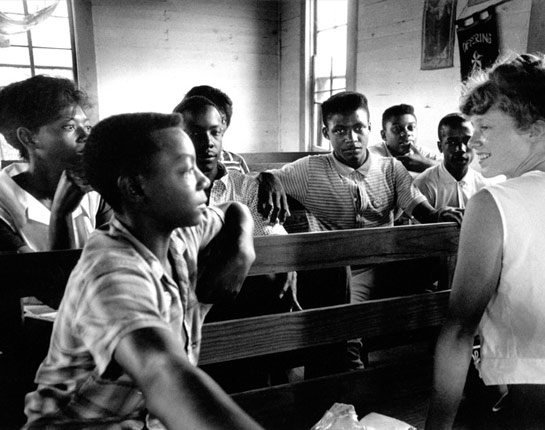
In July, Freedom Schools opened across the state as a means of addressing gaps in the education of black children in Mississippi. Here, Edie Black, a volunteer from Smith College, teaches farm children near Lexington, MS.
Credit: Take Stock/Matt Herron -
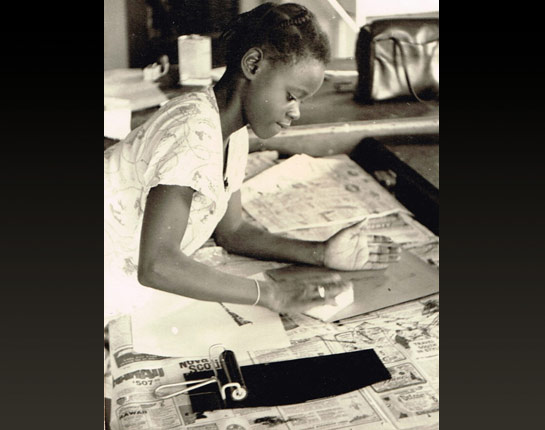
One hundred seventy five teachers in more than 40 Freedom Schools across the state led classes for over 2,000 students.
Credit: Donna Garde -
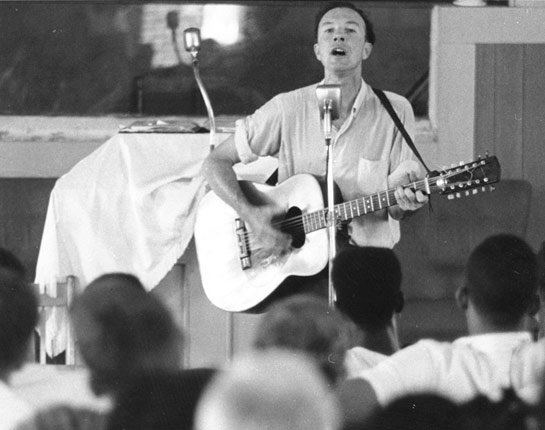
On August 4, folk singer Pete Seeger performed at a church in Meridian, MS. Seeger interrupted his performance to make an announcement: "The bodies of Schwerner, Goodman and Chaney have just been discovered. They were buried deep in the earth."
Credit: Herbert Randall -
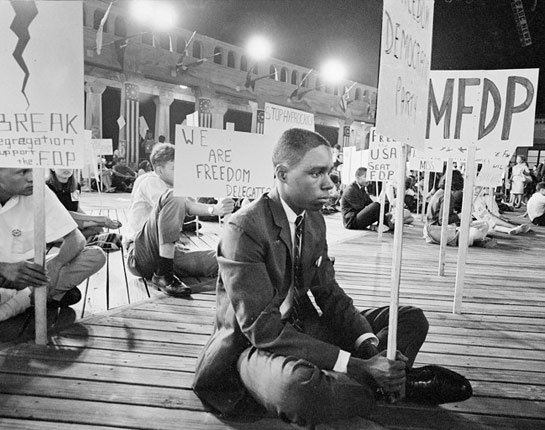
In August, the Mississippi Freedom Democratic Party (MFDP) traveled to Atlantic City, NJ to attend the Democratic National Convention (DNC). Their intent was to unseat and replace the all-white Mississippi Democratic Party, which had denied political representation to blacks across the state.
Credit: Take Stock/Matt Herron -
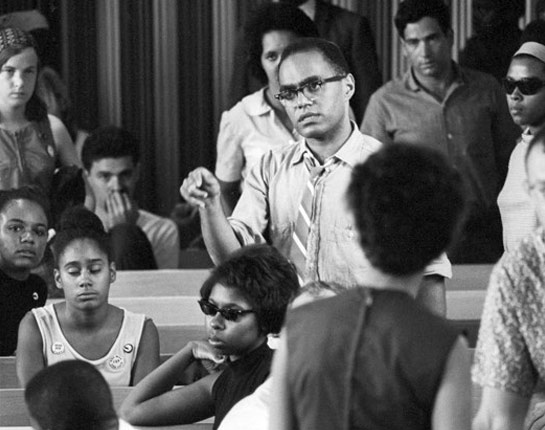
In a compromise offer, the DNC offered two seats to the MFDP, which meant the Mississippi Democratic Party would have kept 68 seats. The MFDP rejected the deal.
Credit: Take Stock/George Ballis & Matt Herron -
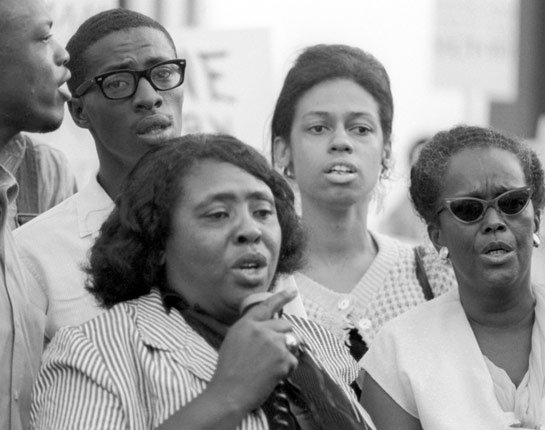
Although discouraged, Fannie Lou Hamer and the MFDP returned to Mississippi determined to continue fighting. Their efforts would result in the Voting Rights Act of 1965, and by 1968, nearly 60% of eligible blacks were registered to vote.
Credit: Take Stock/George Ballis & Matt Herron




